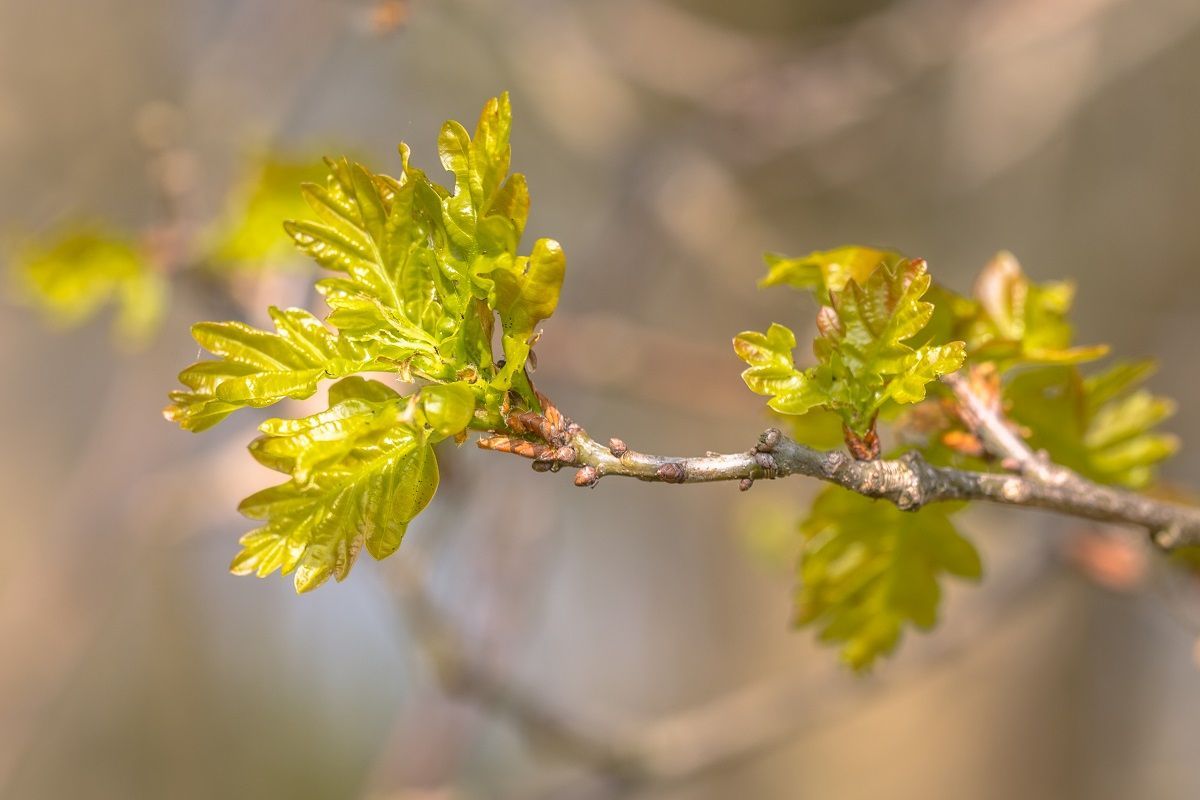Oak season in San Antonio, Texas, brings beautiful blooms and lush landscapes, but it also signals the onset of seasonal allergies for many. If you're among the millions affected by oak pollen, you know how debilitating the symptoms are. From sneezing and itchy eyes to congestion and fatigue, oak season allergies make daily life challenging.
But don't worry! In this article, we’ll walk through expert relief strategies to help you navigate oak season easily and comfortably.
What Are Oak Allergies?
Oak allergies are seasonal allergies caused by an allergic reaction to oak pollen. During oak allergy season, oak trees produce large amounts of pollen, which triggers allergic reactions in sensitive people. If you're experiencing allergies to oak pollen, it's essential to know the common symptoms to reduce the risks of allergic reactions.
Oak allergy symptoms may include:
- Sneezing
- Runny nose
- Itchy eyes
- Throat irritation
- Congestion
- Fatigue
- Headaches
- Difficulty breathing (in severe cases)
If you suspect an oak allergy, it's best to consult an allergist to diagnose the condition and recommend an appropriate treatment plan.
Overcoming Oak Allergy Challenges
To combat the threat of oak pollen allergy effectively, seek guidance from an allergy doctor in San Antonio. These professionals have the expertise to identify specific triggers and customize effective treatment plans accurately. An allergy treatment center provides a sanctuary for those seeking relief from oak allergies, with various solutions available to alleviate symptoms for your specific allergy case.
Expert Tips for Oak Allergy Relief
Oak Allergy Tests
Take an allergy test to confirm whether or not you have an oak allergy. Several allergy tests, including skin prick and blood tests, can help accurately diagnose oak allergies. You should consult your local allergist to determine which test is right for you and receive proper treatment.
Stay Informed on Pollen Levels
Staying informed about
pollen levels is essential, especially during oak season in Texas. Check your local pollen forecasts regularly and plan outdoor activities on days with low pollen levels.
Keep Doors and Windows Closed
During the oak season, it's best to shut windows and doors to prevent pollen from entering your home and worsening allergic reactions, even though letting the fresh air in can be tempting.
Use High-Efficiency Particulate (HEPA) Air filters
Use air purifiers with HEPA filters to capture airborne oak pollen, making your living space, particularly your bedroom, allergy-free. A National Library of Medicine study says
HEPA filters capture 99.7% of common allergens. These state-of-the-art machines are very effective for allergen management.
Keep Allergy Medications Handy
Anti-allergy medications, such as antihistamines and nasal corticosteroids, may be helpful during oak season, but work best if started before the oak season gets underway. These drugs provide quick relief from symptoms and are available over the counter. Always keep some medications at home and work since allergic reactions can occur anytime and anywhere. Make sure to consult your allergist before taking any over-the-counter medication.
Maintain Personal Hygiene
After spending time outside, shower and change clothes to remove lingering pollen and reduce the risk of transferring it indoors. Airborne pollen clings to clothes and may trigger allergic reactions in sensitive people long after the initial exposure. In addition to helping you avoid allergic reactions, regular hygiene also promotes better overall health.
Immunotherapy
Immunotherapy (allergy shots) may work for people with severe oak allergies. A National Library of Medicine study concluded that immunotherapy is a safe and effective treatment for
allergic rhinitis caused by tree pollen. Allergy shots involve receiving regular injections of small doses of oak pollen over time, gradually building immunity to the allergen. Injections are initially given once or twice weekly for about three to four months. Afterward, they taper down to every two weeks and eventually to every four weeks. Therapy may last from three to five years or longer. Allergists typically suggest starting allergy shots at least 12–16 weeks before pollen season starts. Accelerated immunotherapy options are also available for certain patients.
This treatment significantly reduces allergy symptoms in some people. Consult with an allergist to see if immunotherapy is a suitable option for you.
Visit Your Local San Antonio Allergist
You should schedule an appointment with your local
allergist in San Antonio to identify your allergens and develop a personalized treatment plan. These allergy experts are your best bet to ensure a comfortable oak season with a lower risk of allergic reactions.
The Role of Allergists During Oak Allergy Season
Allergists are crucial in helping patients manage their allergy symptoms, including those caused by oak pollen. They can provide effective allergy medications and recommend lifestyle changes that help reduce exposure to oak pollen.
Moreover, allergists can perform thorough testing to determine the specific allergens causing a patient's symptoms. So, if you're struggling with oak allergies this season, consider consulting an allergist to get the expert treatment and guidance you need.
Navigating oak season allergies in San Antonio doesn't have to be daunting. By following these expert tips, you can effectively manage your symptoms and enjoy the springtime without the discomfort of allergies. Remember to stay informed, seek medical advice when needed, and take proactive steps to minimize your exposure to oak pollen. With an educated approach, you can conquer oak allergies and reclaim your enjoyment of the season's delights!
FAQs
When is oak season in San Antonio, Texas?
Oak season in San Antonio, Texas, usually begins in late February or early March and may last until early May. This period varies slightly depending on weather conditions.
How can I reduce exposure to oak pollen during oak season?
To reduce exposure to oak pollen, you can:
- Keep windows closed during peak pollen times
- Use air purifiers with HEPA filters in your home
- Shower and change clothes after being outdoors to eliminate pollen
- Use nasal saline rinses to clear pollen from your nasal passages
When should I see an allergist for oak tree allergy symptoms?
You should see an allergist if your allergy symptoms become severe and persistent (despite over-the-counter medications), you experience breathing difficulties, or you feel other concerning symptoms. An allergy doctor will provide a proper diagnosis and effective treatment options.
Are there any lifestyle changes that can help reduce oak season allergy symptoms?
Ensuring a healthy lifestyle, adequate hydration, and a nutritious diet can help support your immune system and reduce the severity of oak season allergy symptoms. If you need to exercise during pollen season, do it indoors to minimize exposure.
Can Oak Season Allergies Cause Asthma Attacks?
For some people, oak season allergies may trigger asthma attacks, especially if they have
allergic asthma. People with asthma need to manage their allergies effectively to prevent exacerbations. Understanding the connection between asthma and allergies aids in managing both conditions safely and effectively.
Take Control of Your Oak Allergies With Our Allergy Specialists!
Congratulations on completing your oak season allergies crash course! Now that you're informed about managing oak allergy season in San Antonio, Texas, it's time to find a reliable allergy clinic you can work with to ensure lasting relief.
Our board-certified
Apex Allergy and Asthma allergist, Mark Stahl, DO, and his team are ready to provide quality treatment and management options for oak allergies, asthma, and similar conditions. They have a proven track record with years of experience serving the wonderful community of San Antonio.
You can contact us at (210) 490-2051 or
book an appointment that suits your schedule by clicking the link.








